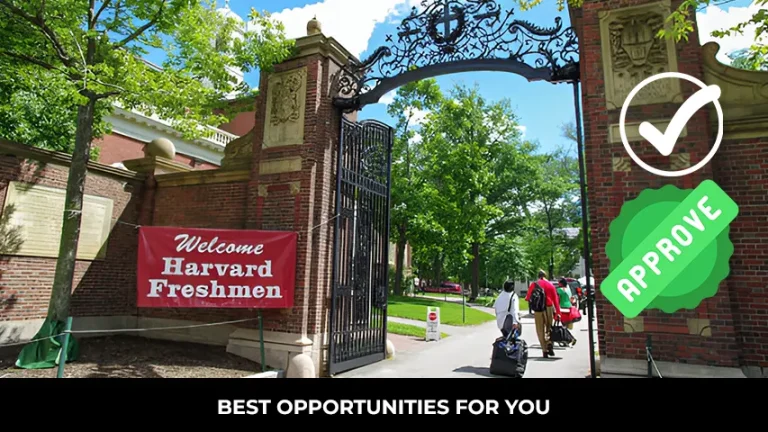Study in Australia: Student Visa Essentials for International Students 2025
Student Visa Essentials for International Students
Thinking about pursuing your education in Australia? As an international student, understanding the visa requirements and application process is crucial.
This guide will walk you through everything you need to know about studying in Australia, including the eligible countries, visa essentials, and how to apply for scholarships.
Eligible Countries for Australian Student Visas
Australia welcomes students from all around the globe, but specific visa requirements may vary depending on your country of origin. Here’s a breakdown of some eligible countries for Australian student visas:
| Region | Countries |
|---|---|
| Asia-Pacific | China, India, Vietnam, Malaysia, Indonesia |
| Europe | United Kingdom, Germany, France, Italy, Netherlands |
| North America | United States, Canada |
| South America | Brazil, Colombia, Chile |
| Africa | South Africa, Nigeria, Kenya |
| Middle East | Saudi Arabia, United Arab Emirates, Iran |
Each country may have specific agreements or streamlined visa processes with Australia, so it’s essential to check with your local Australian embassy or consulate for the most accurate and updated information.
Australian Student Visa Requirements
To study in Australia, you’ll typically need a student visa. Here are the key requirements you must fulfill:
1. Acceptance into a Course: You must have been accepted into a registered full-time course at an Australian educational institution.
2. Financial Capacity: You need to demonstrate that you have enough funds to cover your tuition fees, living expenses, and return airfare.
3. Health Insurance: It’s mandatory to have Overseas Student Health Cover (OSHC) for the duration of your stay in Australia.
4. English Proficiency: Depending on your course and nationality, you may need to provide evidence of your English language proficiency through tests like IELTS or TOEFL.
5. Character Requirements: You must meet certain character requirements and provide a police clearance certificate from your home country.
6. Genuine Temporary Entrant (GTE): You need to prove that you genuinely intend to stay in Australia temporarily for the purpose of study.
How to Apply for Scholarships
Securing a scholarship can significantly ease the financial burden of studying abroad. Here’s a step-by-step guide on how to apply for scholarships in Australia:
1. Research Scholarship Options: Explore scholarship opportunities offered by Australian universities, government bodies, and private organizations.
Websites like Study in Australia and Australian Government Scholarships provide comprehensive listings.
2. Check Eligibility Criteria: Carefully review the eligibility requirements for each scholarship, including academic achievements, course of study, and country of origin.
3. Prepare Required Documents: Gather necessary documents such as academic transcripts, letters of recommendation, and a statement of purpose.
4. Submit Applications: Follow the application instructions provided by each scholarship provider. Deadlines can vary, so make sure to submit your applications well in advance.
5. Interviews and Selection: If shortlisted, you may be required to attend interviews or provide additional documentation.
Be prepared to showcase your passion for your chosen field of study and your commitment to contributing positively to the Australian academic community.
6. Acceptance and Confirmation: Once awarded a scholarship, carefully read through the terms and conditions. You’ll likely need to accept the scholarship offer formally and confirm your enrollment in the relevant course.
Best Universities in Australia for International Students
Australia boasts several world-renowned universities known for their academic excellence and vibrant campus life. Here are some top universities that attract international students:
1. The University of Melbourne: Renowned for its research-intensive curriculum and diverse student body.
2. Australian National University (ANU): Located in Canberra, ANU is highly regarded for its programs in politics, humanities, and sciences.
3. The University of Sydney: Offers a wide range of undergraduate and postgraduate courses in a bustling urban setting.
4. The University of Queensland (UQ): Known for its strong emphasis on research and innovation across various disciplines.
5. Monash University: Recognized for its global outlook and extensive international partnerships.
Student Visa Subclass 500
The Student Visa Subclass 500 is the primary visa for international students wishing to study in Australia. Here are some key details about this visa subclass:
Duration: Allows you to stay in Australia for the duration of your course.
Work Rights: Permits you to work part-time (up to 40 hours per fortnight) during the academic session and full-time during scheduled course breaks.
Family Members: You can include eligible family members in your visa application.
Applying for the Student Visa Subclass 500 involves completing an online application form, providing required documentation, and paying the visa application fee.
Processing times can vary, so it’s advisable to apply well in advance of your course start date.
Australia Study Permit and Immigration for Students
Securing your study permit (Student Visa Subclass 500) is crucial for legal entry into Australia as an international student. The immigration process involves:
1. Visa Application: Complete the online application form on the Australian Government’s Department of Home Affairs website.
2. Document Submission: Upload required documents, including your Confirmation of Enrollment (COE), proof of financial capacity, health insurance, and passport details.
3. Biometric Information: Depending on your nationality, you may need to provide biometric information (e.g., fingerprints and photograph) at a Visa Application Center.
4. Visa Decision: Once processed, you will receive a decision on your visa application. If approved, you’ll receive your visa grant letter electronically.
5. Arrival in Australia: Plan your arrival in Australia and ensure you comply with all visa conditions throughout your stay.
Student Visa Conditions in Australia
Upon receiving your Student Visa Subclass 500, it’s essential to understand and adhere to the visa conditions:
Course Requirements: Maintain enrollment in a registered course and make satisfactory progress.
Work Conditions: Adhere to the work limitations (up to 40 hours per fortnight) during term time and full-time during holidays.
Health Insurance: Maintain Overseas Student Health Cover (OSHC) for the entire duration of your stay.
Notification Requirements: Inform the Department of Home Affairs of any changes in your circumstances, such as changes in address or contact details.
Failure to comply with visa conditions can result in visa cancellation or refusal of future visa applications, so it’s crucial to stay informed and compliant throughout your stay in Australia.
Australia Student Visa Cost
The cost of applying for a Student Visa Subclass 500 varies depending on your circumstances and the assessment level of your country.
The base application charge for the main applicant is approximately AUD 620. Additional charges may apply for family members included in the application.
It’s important to budget for visa application fees alongside other expenses such as tuition fees, accommodation, and living costs when planning your study abroad journey in Australia.
Conclusion
Studying in Australia offers international students a unique opportunity to experience high-quality education in a diverse and welcoming environment.
By understanding the student visa essentials, eligibility criteria, and scholarship opportunities outlined in this guide, you’re well-equipped to embark on your academic journey in Australia.
Remember, each step—from researching universities to applying for visas and scholarships—plays a crucial role in ensuring a smooth transition and successful experience abroad.
If you have any questions or need further assistance, don’t hesitate to reach out to your nearest Australian embassy or consulate for personalized guidance.
Safe travels and best of luck with your studies in Australia!




